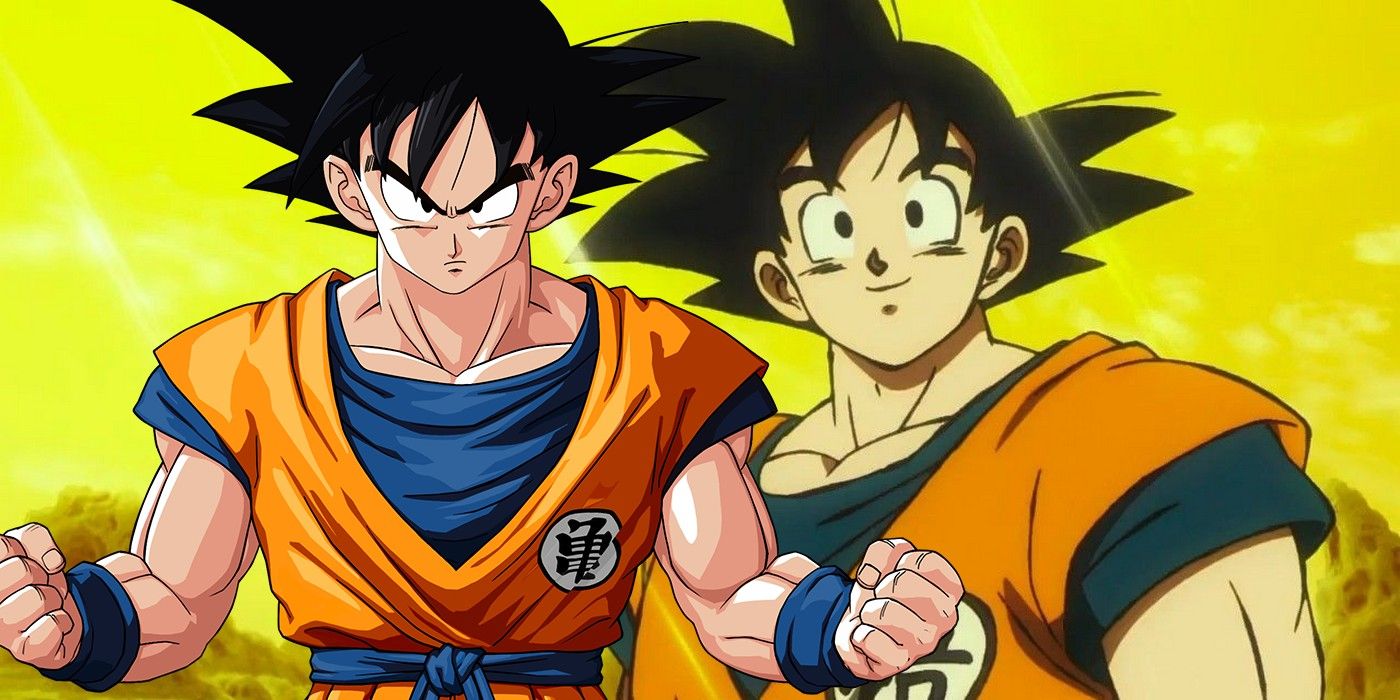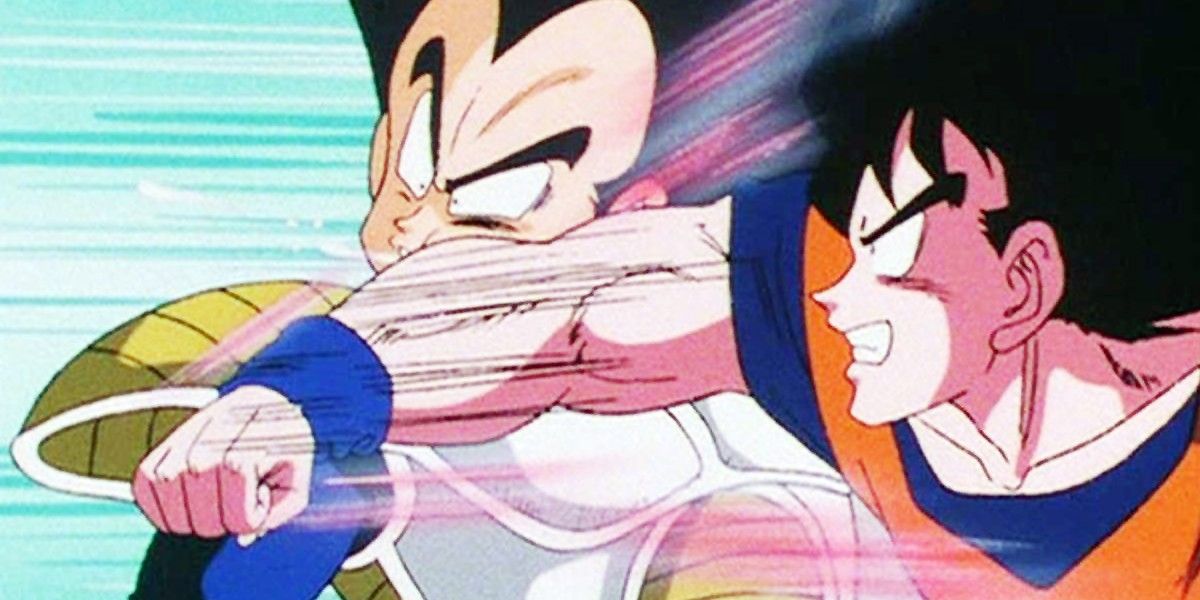
Dragon Ball Z Kai gives a more authentic interpretation of Goku's personality. Dragon Ball Z Kai is a modern remaster of the iconic Dragon Ball Z anime series, aired in 2009 with updated animation and rerecorded dialogue. Dragon Ball Z Kai also comes with new music, some fresh voice actors and less censorship, and these changes combine to give a more accurate representation of Akira Toriyama's Dragon Ball manga. Amendments were made to the English Dragon Ball Z script too, reworked by FUNimation to follow its Japanese counterpart more closely. For example, Dragon Ball Z Kai changes Vegeta's famous (albeit misquoted) "it's over 9000!" line to the correct "it's over 8000!" from the Japanese version and manga.
As revealed in Dragon Ball Z, Goku is a Saiyan who was sent to Earth as a baby. Thanks to a nasty bump on the head, Goku forgot his heritage, as well as the innate bloodlust and ruthless instincts that define his warrior race. The only aspect of Saiyan behavior Goku seems to retain is his desire to seek out and fight strong opponents. In the English dub of Dragon Ball Z, Goku is depicted as the ultimate hero, fighting to protect those he holds dear and repeatedly saving the entire universe from evil villains. He is compassionate, merciful, and often spares his enemies after they’ve been defeated, choosing to see the good in everyone. However, the English dub modified the source material for a young, American audience, and this meant Goku became the archetypal selfless protagonist. But this isn't always how Goku acts in the original manga or the Japanese anime.
Dragon Ball Z Kai bases Goku's personality on the original Japanese script and Akira Toriyama’s vision. A key example would be when Goku asks Krillin to spare Vegeta during the Saiyan Saga. In Dragon Ball Z, Goku wants to show Vegeta what it means to be merciful, hoping his enemy might follow in the footsteps of Piccolo and become an ally. But in Dragon Ball Z Kai, Goku spares Vegeta purely because he was excited by the prospect of fighting the Saiyan Prince again one day, and thought killing a good opponent would be a waste. Another change occurs when Goku gives Vegeta a Senzu Bean on Namek. In Dragon Ball Z, Goku says he owes Vegeta for helping Gohan and Krillin, so is paying off the debt like a good protagonist should. In stark contrast, Goku states in Dragon Ball Z Kai that he wants Vegeta to be in good shape for their future rematch on Earth.

Dialogue changes of this kind fundamentally alter Goku's character and motivations. In Dragon Ball Z Kai and Toriyama's story, the Saiyan is flawed and far less altruistic. Although he still shows mercy to beaten opponents, Goku's reasoning is often self-centred, tapping into his Saiyan desire for strong opponents, challenging battles and self-improvement. Goku isn't saving the Earth just because it's the right thing to do, he actively enjoys the battle, but this aspect of his personality is obscured in the English Dragon Ball Z dub, making Goku a more traditional baby-faced hero.
Dragon Ball Z Kai's authentic Goku makes far more sense in the wider context of the story. The Saiyan is shown to be neglectful of his family and even wishes Buu to be resurrected into a strong sparring partner. These actions go against Goku's heroic persona in Dragon Ball Z, but are totally logical alongside the more selfish character seen in Dragon Ball Z Kai. This flawed Goku is also consistent with the Dragon Ball Super sequel series, in which Goku's lust for competition triggers the Tournament of Power and subsequently puts several Universes at risk of erasure by the Omni King. No version of Goku ever veers into antihero territory, but Toriyama's character just goes to show that even the pure-hearted can be selfish.
from ScreenRant - Feed https://ift.tt/2XUOBGW


0 Comments